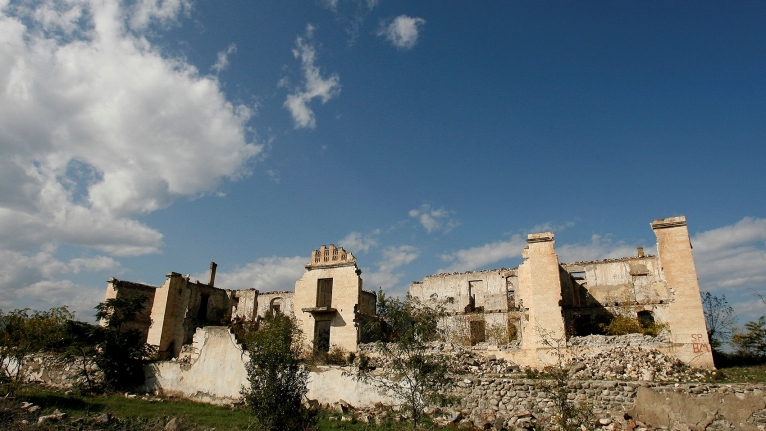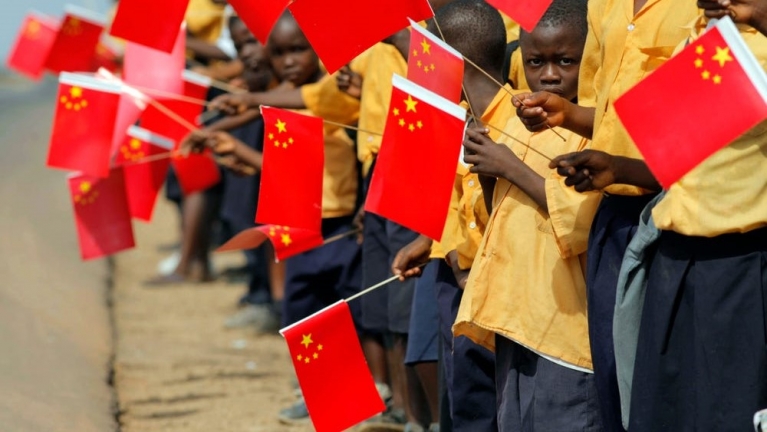So-called populism is a political movement which has grown significantly across almost the entire world, mostly in the form of right-wing populism. Left-wing populist movements (such as Syriza in Greece or Podemos in Spain) are are looked upon much more leniently, at least in Germany. An essay by Ralf Schuler.
The word “populism” has departed from its original meaning and has become the name for a political category: a rather rough style of politics, a mixture between nationalism, skepticism, a rejection of international organizations, and often a clear emphasis on Christian traditions and conservative world-views.
However, in actual fact, “populism” simply refers to a not entirely respectable simplification of political processes – a more or less responsible way of telling people what they want to hear, of picking up the opinion of the common man, and at the same time despising idealistic aims. A bit of populism is the basis of any successful policy and any successful politician’s career. Whereas in the original definition, the line between populism and regular, accepted democratic representation is blurred, the use of the term populism as a certain political category and polemic description is clearly derogatory and stigmatizing.
In my book “Let’s be populists” (published in German by Herder Verlag in 2020) I have shared some thoughts about this phenomenon. On the one hand, I want to raise awareness for the fact that – successful – new political movements such as AfD in Germany, Marine LePen in France, Geert Wilders in the Netherlands, True Finns, Sweden Democrats have not come out of nowhere. In fact, they are something like a deficiency syndrome of the political establishment and an alarm signal of democracy. At the same time, in almost all cases, an increase in populism goes along with a deep mistrust towards the democratic constitution of the state and also a deep mistrust towards established media. The journalistic profession is facing deeply-rooted doubts and often even outright hostility.
In Germany, this has led to catchphrases like “Lügenpresse” (“lying press”) and “Lückenpresse” (“gap press”) – similar to “fake news” in the English language. These terms insinuate that the media are loyal to the state and system, and they express contempt for the alleged fact that certain (conservative, patriotic, migration-critical) views are either not expressed at all, or clearly underrepresented in the classical media. One shouldn’t take this lightly. In Western democracies, information is, as it were, the blood in the veins of information society. Information is the basis for decisions and a joint social consensus about the development of the community. When the suspicion is growing that we are discretely steered by false or incomplete information, the fundament of society is being attacked with a demolition hammer. When the idea arises that there is a “system” and “closeness to the system” on the one hand, and independence and credibility on the other – a situation we know from the time of communism – the social cohesion begins to crumble.
For the media, this is threatening in several aspects. It’s economically threatening, because a lack of trust results in a decline in reader/user numbers, which undermines the economic basis of media outlets. It’s also politically and socially threatening, since our profession relies on trust in our integrity. Any trust that has been lost can hardly be won back. Skeptical circles migrate to the internet. There they lead a, sometimes bizarre, life of their own, and can hardly be reached by established politics any longer. The consequence: increasingly large parts of society follow, as it were, free-floating and changing momentary political trends. Sometimes they may march with Attac, sometimes against free trade agreements, and then against a perceived “corona dictatorship”. It is a risky political lottery whether such a movement is becoming stronger just prior to upcoming elections, and whether there happens to be a charismatic personality who can provide this vague discontent with access to state authority. Democratic elections can provide disquieting, anti-democratic movements with democratic legitimization and power.
Given the issue of corona in particular, the media find themselves in a difficult situation. On the one hand, they must cover the corona developments in a responsible way and try to encourage people to deal with the virus situation carefully and thoughtfully. On the other hand, the media must also fulfill their control function. They must oppose politicians who give in to the temptation of simply taking drastic measures instead of following the control mechanism for the government’s actions. When the media are critical of the government here, they can quickly be accused of supporting corona deniers. But the media must question the development of the pandemic, the key figures and statistics. They must address doubts about, for example, virological curves whose dramatic meaning cannot be observed or understood in everyday life. Overall, this constitutes a tricky balance between a responsible appeal to solidarity within the community and the fight against the abuse of power. It’s always tricky if free media are supposed to support a policy, because the line between actual ethical responsibility and a mere demand for political support is blurred.
Populism existed prior to the coronavirus, but it is strengthened by the pandemic. In order to curb the virus, even democratically stable states employ massive constraints on basic rights, restricting the freedom of movement and assembly. These are emergency measures that – within the complicated system of rules and quantifications in politics – will only be met with acceptance and consensus if there is a consensus about the type and intensity of the threat. At this point, again, the media play an important role. They must convey a picture of reality to the citizens – or not – which makes people understand and accept the government’s decrees and empowerments. However, people who have always thought that the state is too encroaching will think that the virus is welcome excuse for the authoritarian ambitions of the powers that be.
If you talk to the German Chancellor behind the scenes these days, you will find that her view of the world has become much darker. This has less to do with the approaching end of her time in office, or with health or private problems, but with the fact that almost none of her domestic and foreign policy plans work out any more. I have described this in more detail in my book.
For a while now, Angela Merkel has stressed a form of “70 years theory of world history”.
As an example, Merkel likes to refer to the 1555 Peace of Augsburg, where a peaceful coexistence between the two major confessions was agreed on. Almost 70 years later, in 1616, the Thirty Years’ War began, in which Catholics and Protestants went for each other. Today, 75 years after the Second World War, we are allegedly facing the risk of losing the knowledge of we gained back then. As a consequence of the World War and the rupture of civilization, the Shoah, our aim was to strive for a multilateral world of free, equal and equitable nations. Today, there is a fallback into thinking in terms of nationality and power. Instead of strengthening the law, the law of the strongest threatens to prevail again. And once people are thinking against each other, sooner or later they will also use arms against each other.
Please allow me to add a personal remark. I think that the Chancellor is committing an idealistic fallacy here. Or maybe it is an attitude that is presented out of a sense of duty. Looking at it matter-of-factly, thinking in terms of one’s advantages and striving for power, violence, spheres of influence, and domination has never disappeared in the history of the world following the Second World War. Not during the Cold War, not within the UN with the permanent members of the security council’s right to veto, and not even within the European Union, where the major countries have always managed to enforce their interests (France: agriculture, Germany: car industry, etc.). In this sense, this is merely a degree of honesty that is currently returning to the world stage – even though this honesty can seem uncomfortable and, at times, threatening. In my view, it is more prudent and more effective to do politics, acknowledging this cold truth and taking facts into account, than to follow an unrealistic ideal.
In the Chancellor’s mind, the corona crisis has heightened this development. She regards the virus not only as a challenge for the health system, but (literally) as a “catastrophe of the century”. Although she doesn’t adapt Emmanuel Macron’s martial choice of words (“war against the virus”), she says that there is something true about that metaphor. On the one hand, there are the people who have died from covid. On the other hand, the corona policy poses a risk for the domestic political stability of states. Populists could rise, because they gather majorities in their rejection of the freedom-restricting corona measures. The entire democratic order could be viewed with suspicion. And even geostrategically, the virus could seriously change the international power dynamics if authoritarian powers such as China are becoming stronger again, because they can just order an economic restart – while we are still struggling with a lockdown. America is an unsteady partner and will be preoccupied by dealing with its own affairs because of the virus. If Turkey were to no longer cooperate with the EU, there could be renewed streams of migrants. The divisions within the European Union in terms of prosperity, economic power, and political style could further deepen. Moreover, nobody can really estimate the long-term consequences of the multi-trillion corona debt policy.
At this point, we’re coming back to the media landscape and tabloid journalism. Tabloid journalism has become even more important because of corona.
The modern trend of “cancel culture” – simply leaving out unwelcome issues and agents, because they are considered infectious for the public mood – cannot, and must not, be a solution. Because it is not. To think that one could simply discredit a couple of people who protested in front of the Berlin Reichstag as “Nazis” and “corona deniers” will not work in the internet era. In numerous forums, the protesters will not only call the official number of participants into question, but will also deny that they are only a bunch of lunatics and ignorants.
In this context, the classic tabloid techniques of intensification, personalization, and getting as close as possible to the issue turn into journalistic virtues. Amidst the corona crisis, ignoring social truths and maintaining the attitude of “standing strong” despite contrary facts is not helpful and is even dangerous.
The author is a German journalist, leader of Bild magazine's Bundestag editorial office. This article was originally a lecture he gave at MCC Media School in Budapest in November 2020.
Foto: dpa










